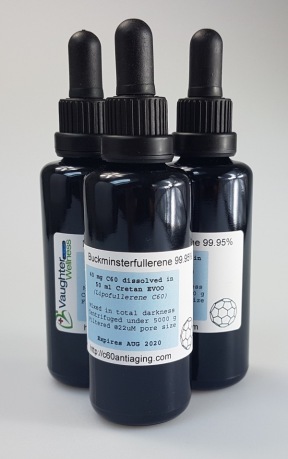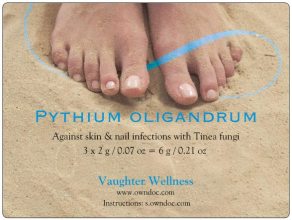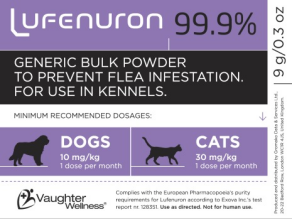
Mushrooms against Candida
 Probably the most persistent myth about Candida is that eating mushrooms is a big no-no. Before debunking this story, we want to remind the reader that Candida infection is neither an "allergy to yeasts" nor neccessarily a "condition from within, due to lifestyle". Candida albicans is a potentially very hostile microorganism and you can get it after a course of antibiotics or due to a lapse in your immune system. Candida is not some imaginary problem - and it is a serious problem.
Probably the most persistent myth about Candida is that eating mushrooms is a big no-no. Before debunking this story, we want to remind the reader that Candida infection is neither an "allergy to yeasts" nor neccessarily a "condition from within, due to lifestyle". Candida albicans is a potentially very hostile microorganism and you can get it after a course of antibiotics or due to a lapse in your immune system. Candida is not some imaginary problem - and it is a serious problem.
As with all complex medical issues, there are a lot of misunderstandings about this infectious disease. No wonder - MD's avoid the topic entirely! On the web, people usually limit their advice to natural symptom relievers and supporting diet. Not even "common knowledge" is always reliable, however. When searching for "candida and mushrooms", we find claims such as:
"Eating ordinary mushrooms is not a good idea if you have Candida because you're feeding it its own kind."
and:
"Eating blue cheeses is also not a good idea if you have Candida. These fungi are introduced into the cheese and, though they are tasty, are harmful to your health if you have a fungal problem."
Some myths may have a kernel of truth, but this one certainly has not. On the contrary, mushrooms are an excellent part of the diet for those with Candida - including patients with IBS. Mushrooms can be useful in the fight against Candida albicans!
Scientific research shows that:
-
not a single edible mushroom will make Candida worse,
-
mushrooms are excellent food for those with Candida infection,
-
some mushrooms found in the forest or at the greengrocers' are Candida-killers,
-
ordinary Portobello champignons help the immune system fight Candida albicans.
Before we move to the hard scientific evidence for these claims, we should look into the source of the mushroom-myth.
|
"Many other common food mushrooms are in fact Candida-killers" |
Humans are intelligent creatures partially due to our ability to generalize. When we've once been stung by a wasp, next time we see a similar animal, we try to avoid it - even though there are harmless flies that look just like wasps. We know that some snakes are poisonous so we avoid touching snakes - even though quite a few species are harmless. This behavior makes sense, of course. We sometimes improperly generalize or over-generalize, but when it's about diseases or potentially dangerous animals, it's better safe than sorry.
When our immune system fail us and we become victim of a chronic Candida albicans infection, eager for advice, grasping for straws, we certainly can believe that mushrooms, yeasts and fungi will make matters worse. We're not mycologists but it makes sense that when you have a fungal problem, that avoiding fungi sounds like a good idea, right?
Perhaps, but no, it's not a good idea.
Candida albicans in both yeast- and mycelial form is about as related to mushrooms or the fungus in blue cheese as a fish is to a lizard, and over-generalizing will harm instead of help. Discouraging the consumption of molds and mushrooms because "You are feeding the Candida its own kind" is utter nonsense on many levels, and you'll never see a link to a scientific article to prove it - because there aren't any.
It makes as much sense as thinking that if you have a staph infection, you need to kill off your intestinal flora because your intestinal bacteria would promote the growth of the staph bacteria. In fact the opposite is true. A healthy intestinal bacterial flora will strengthen your immune system and help you fight the staph infection. And the beneficial Lactobacillus bacteria are closer related to staphylococcus than Candida is to a mushroom! And if anything, the mold in blue cheese will compete with the Candida, not "feed" it. "Avoid foods with yeasts" is pseudoscience and magical thinking. There is absolutely no way the Candida yeast can somehow magically transform bakers' yeast or any other yeast into more Candida any much better than it can digest other food. It would be just as illogical to say that "If you have rats, don't get a cat because both are mammals and you're just feeding the rats their own kind".
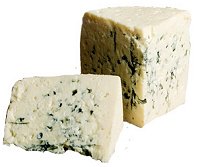
By themselves, mushrooms contain almost no calories but have fibre and texture, making them an ideal low-GI food that satisfies quickly. Candida albicans is unable to ferment mushrooms. Let's examine the common Champignon or "common edible mushroom", "white button mushroom", "pizza mushroom", "Portabella/Portobello" or "Crimini". Its Latin name is Agaricus bisporus - the cheapest and most well-known of all "supermarket" fungi.
Opinions differ as to its nutritional value - some saying it is on a par with beef and better than vegetables, others say it's completely useless. However, Wikipedia says that Champignons are particularly rich in vitamin B2, B3 and D. Vit. D is essential for the immune system. Phosphorus, potassium and antioxidants such as selenium, poliphenols and ergothioneine abound in this common mushroom, as well as nearly all essential amino acids. On top of that, Champignons have lecithin, which prevents the buildup of cholesterol. In short: This ordinary mushroom is bona-fide food. In order to produce all these nutrients, Champignons require a very (nitrogen) rich soil.
Another wrong reason for not eating "Portobello/white button" mushrooms is that "sometimes they have mold on them and we don't want to add mold on top of mold". This argument is based on the mistaken belief that Candida somehow gets "stronger" when you put a totally unrelated mold in your stomach - where it will be digested by you, not by the Candida. Or that it somehow "stresses the immune system". Of course I don't recommend eating moldy food, but any random harmless mold has as much in common with Candida as a chicken with a hamster, and Candida certainly can't "feed" on it. Candida feeds on sugars, not on molds. On the contrary, molds of different types fight eachother. All this is basic biology. Anyway - we have eyes to see moldy food and avoid it. Too much dogma is counterproductive because this ordinary fungus is beneficial to us in more than one way:
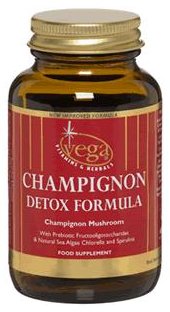
In China, the white button mushroom is credited for its bowel relaxation- and detoxification properties. This rumored detox-property of Champignons prompted Western online shops to sell it as a food supplement. We do not put much credence in "detoxing", however.
But that's not all: These mushrooms have powerful immune-system strenghtening qualities, improving the ability of immune cells to kill invaders such as Candida yeasts. This is a peer-reviewed and published scientific fact:
http://ncbi.nlm.nih.gov/pubmed/17513409
Mice given a diet with a lot of Portobello mushrooms got a strong immune-system boost. Just by eating plain old sliced and diced greengrocers' fungi!
So even the cheapest, most ordinary mushrooms are highly nutritious, low-calorie food and have immune-boosting qualities. But there is more. Many other common food mushrooms are in fact Candida-killers!
Take this research, for example:
Scientists discovered strong anti-Candida activity in wild edible mushrooms picked in Turkey. The specias were Armillaria mellea, Clitocybe geotropa, Meripilus giganteus and Sparassi crispa.
There are mushroom catalogs with a "mycomedicinals" appendix. Mushrooms listed as anti-Candida are Ganoderma lucidum (Reishi/Ling Chi), Grifola frondosa (Maitake/Hen of the Woods), Lentinula edodes (Shiitake), Schizophyllum commune (Suehirotake/Split-Gill) and Trametes versicolor (Yun Zhi/Turkey Tail). All of the latter fungi with the exception of Schizophyllum are immunity-boosters as well.
Paul Stamets has been a mycologist for 30 years, and some consider him the world's #1 expert on fungi. He wrote a book on Myco-medicinals, medicines derived from mushrooms.
Paul Stamets' book MycoMedicinals
Paul says that many fungi help fight Candida. It makes sense. Mushrooms produce natural anti-yeast factors to prevent other fungi from taking over their turf.
Candida is so much different from edible mushrooms, that there is no risk of an "inflammatory effect" or "myco-allergens" entering the bloodstream through a perforated bowel wall. These fears are unsubstantiated. They have no basis in reality. By all means, avoid mushrooms and blue cheese if that makes you feel better. But the advice to avoid mushrooms, yeast and fungi when suffering from Candidiasis does not stand up to scientific scrutiny - on the contrary - many edible fungi boost the immune system and contain powerful natural anti-Candida substances.


 Dermaneedling for Alopecia
Dermaneedling for Alopecia What you need for dermaneedling your skin issues
What you need for dermaneedling your skin issues See how competing devices cause skin microtearing
See how competing devices cause skin microtearing Copper peptides for dermaneedling
Copper peptides for dermaneedling Dermarolling explained
Dermarolling explained How dermaneedling works
How dermaneedling works
 Psychological aspects of stretchmarks and the beauty cult
Psychological aspects of stretchmarks and the beauty cult Dermaneedling side effects?
Dermaneedling side effects? Stretchmarks: Single needle before and after
Stretchmarks: Single needle before and after
 What to do about Cellulite?
What to do about Cellulite? Dermaneelding: Hype vs. reaslistic results
Dermaneelding: Hype vs. reaslistic results Progress pics: Acne scars, stretchmarks, pigmentation
Progress pics: Acne scars, stretchmarks, pigmentation SkinPen review: Deceptive advertising!
SkinPen review: Deceptive advertising!



